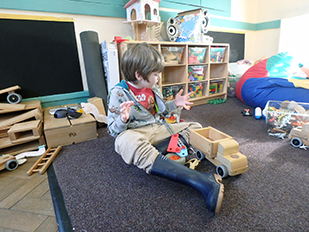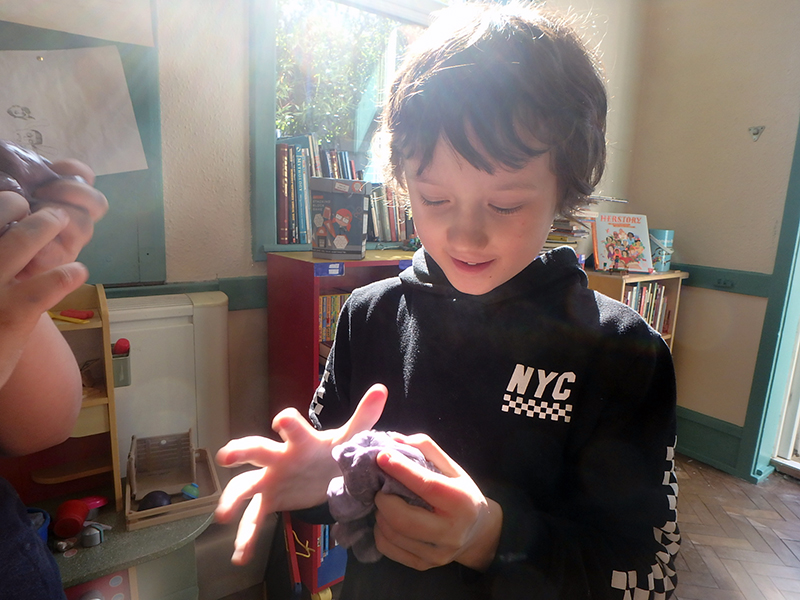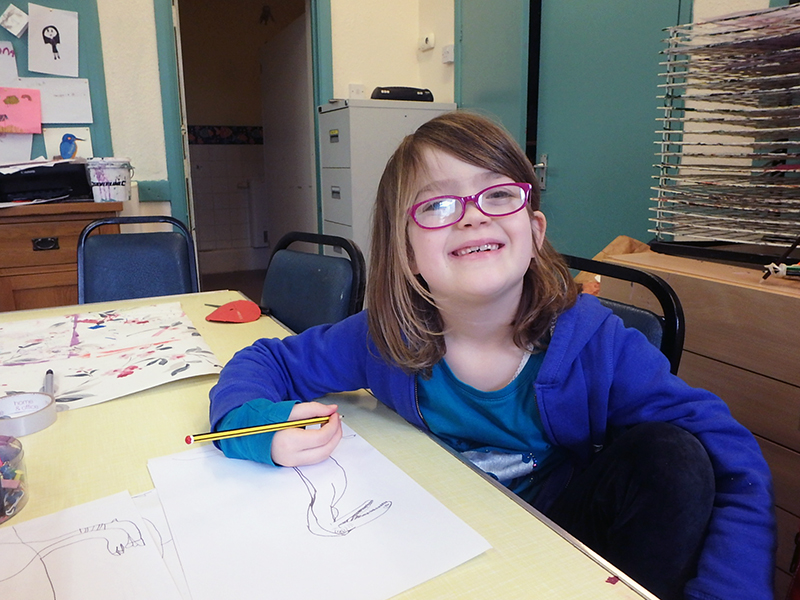
There have always been kids who don’t fit the mainstream school system. Over the years, those children have been managed in a variety of ways – some have been declared ineducable and sent home (rumour has it that Thomas Edison was included in this number), some have been sent to stricter schools, some are sent to schools where academic success is unusual and the focus is instead on life skills, others are put through an exhaustive set of tests and assessments to decide exactly what the problem might be, so they can (in theory at least) be provided with the right support to enable them to cope. Some parents decide to skip all of that and home educate, thus avoiding the clash between the reality of their child and mainstream school expectations.
And some go to democratic settings. Here, no one will test them to see whether their problems are emotional, behavioural or cognitive. No one will design careful programmes to teach them the skills they apparently lack. The only criteria for acceptance is whether they can live autonomously alongside other members of the community, without infringing on the freedom of others, and that they co-operate with the democratic structures of the community. This does, inevitably, exclude some children – but it isn’t along the lines of diagnosis. Some children without diagnoses cannot manage the requirements of a democratic setting, whilst many who have received diagnoses can. When children aren’t able to comply with the rules of the community, they are often asked to apply again in a year or two, when they have had time to mature.

Trying democratic education is a big step, for parents who have been told that their child needs intensive support, perhaps one-on-one with a learning support assistant, or whose child is responding so badly to a mainstream school environment that they are hitting and punching other children and refusing to go to school. They have been told that their child needs more intervention than other children, more therapy, specialised lessons to help them catch up, more structure and routine. Less autonomy rather than more. Democratic settings offer none of this. It’s a brave parent who gives it a go.
Yet visit any democratic learning community and you will see children who have been diagnosed with autism, ADHD and learning disabilities thriving, with less support and more autonomy than children in the mainstream school system. How can this be?
The key, in my opinion, is the lack of comparison with other children. By definition a developmental delay is defined by age-related norms – expectations about what children of that age should be able to do. If a child is ‘behind’, that means that other children of their age are doing things they aren’t doing.
Of course, the school system chooses which comparators are important. Reading, writing, maths – all of those are important enough to rate children on. Compliance with adults is also a key comparator – those children who can sit quietly and listen are far less likely to be seen as a problem than those who insist on running around when their body tells them it needs exercise.
Minecraft, cartwheels, climbing trees and creativity – no one is too worried if your child is delayed on those. I haven’t yet come across an intervention programme designed to make up deficits in Fortnite skills, even though many adults are years behind and may never catch up. My daughter’s creative thinking is far superior to mine – it would never occur to me to craft a mermaid out of an old sock, a lollipop stick, two dental flossers and a lot of Sellotape – but no one has ever told me I’m suffering from Creativity Deficit Disorder.
Fundamental to the ethos of democratic education is that everyone is accepted for who they are. There is no mould to fit into, and thus no division into ‘special’ and ‘normal’. It wouldn’t make sense, in a system where children are not expected to learn on a school schedule, to start to define some of them as delayed. This is the most genuine form of autism acceptance that I have encountered.

When we step away from age-norms, we can free children to learn what they need to know in their own time. We can move away from the language of failure and delay, to focusing on flourishing and learning.
As a practical example of this, consider Harriet Pattison’s research into reading. She surveyed 311 families about how their children learnt to read. What she found was fascinating. Outside school, children learnt to read between the ages of 18 months and 16 years – and there were no apparent differences in their reading ability once they had learnt. Many of these children would have been diagnosed with reading disabilities in the school system, because they had not learnt to read by age 7. Outside the school system, however, their education could continue via means other than reading, and whenever they learnt to read they quickly started reading books meant for their age group. She even had accounts of children who were taken out of the school system as children because they had not learnt to read, and when the pressure was taken off did not learn to read until they were teenagers – but then they were then able to go to college and read for pleasure.
What if the same applies for other skills, but because the school system is so focused on age-comparisons, are we denying our children the chance to learn in their own time?
What if the child who just can’t sit still at age 6, or even 10 or 14 isn’t ever made to sit still, because they can learn in other ways, and the adults around them trust that they will find their way?
What if the child who doesn’t play imaginatively aged 5 is given several more years of opportunity to do so, rather than that window closing when they move onto primary school and are told it’s time now to work, not play?
What if the child who can’t tolerate sitting in a classroom with 30 other noisy children doesn’t have to, because they can take themselves to a quiet space?

We don’t have to imagine it, because democratic learning communities are doing it now. Children who were previously labelled as failures are thriving, on their own terms and in their own time. When we let go of our expectations for children, we can allow each child to become fully who they want to be.
And the rewards of this are many.

Wow, I just love this perspective. My son was very delayed in some basic functional skills but, once gained, that is easily forgotten and it really doesn’t matter at all that at one point he was approx 8 years ‘behind the norm’. But being labelled for this would have affected his confidence and self-esteem. We down-played it at the time in order to minimise any anxieties he might have, but it didn’t escape his awareness. We couldn’t pretend it wasn’t happening but we could say that it didn’t matter and that everyone is different and that everyone (including our cat) is good at some things and finds other things more tricky. We took the approach of pointing out our own difficulties, eg I am rubbish at bowling, my chips are often inedible, I’m scared of heights and spinning things make me feel sick, several of us can’t see without glasses and our cat really struggles to open the cat flap and often needs help – so that he accepted that we are all different and need help with some things, or simply choose not to do them, while being utterly amazing at other things. We also pointed out that our skills and preferences changed over the years, provided lots of personal examples, and encouraged an approach of ‘let’s try something different’ rather than dwelling on difficulties/dislikes.
Thank you Christina, what a lovely response. I’m so happy to hear you were able to give your son that perspective.
Dear Naomi Fisher,
I needed to hear this, and am so grateful for you having written it!
I love that you highlight how age milestones influence an autism diagnosis, and how, in the traditional schooling system, this diagnosis brings about a mass of interventions and total loss of autonomy and freedom to learn at one’s own pace.
When the nervous system is not nourished with autonomy, excitement, and a supportive environment, then no matter how much effort is put into teaching, they cannot learn what they would have naturally. Instead, they internalize strategies of coping with an oppressive environment and trauma.
I have seen children who were taken out of the public school systems, with lots of support and interventions to enable them to sit in a classroom, and let free to follow their passions. It is hard to believe how fast they find ways to thrive and excel!